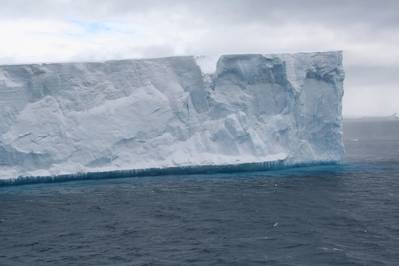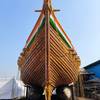Arctic Sea Route Opens for Year's First LNG Cargo
A liquefied natural gas (LNG) tanker carrying a cargo from the Yamal LNG plant has spent this week making its way through Arctic waters north of Russia towards Asia, marking the first voyage of the 2019 summer season across the Northern Sea Route.
The Vladimir Rusanov, an Arc7-classed LNG tanker that can plough through semi-cleared waters, left the Sabetta port on June 29 and is in the Chukchi Sea close to the Bering Strait, Refinitiv Eikon shipping data showed on Friday.
The route is frozen for most of the year but is being increasingly used during the summer as ice clears quicker and for longer as the climate changes. Vessels are now able to cross the route without the use of ice-breakers to clear their path.
Independent Russian gas producer Novatek began operations at Yamal, in northwest Russia, with the aim to ship some of the LNG eastwards with its Arc7 tankers. Last year, as the terminal was ramping operations it began in December 2017, four such tankers were sent eastwards.
For Novatek, the route is attractive because it gives a much more direct access to the world's largest LNG consumers in Asia. For other shipping companies, the route has the potential to cut the costs and time to access Asian markets.
PetroChina, the international arm of Chinese state energy firm CNPC, is a 20 percent stakeholder as well as customer of Yamal, with French oil major Total holding another 20 percent stake.
Novatek is expected to take a final decision to build Arctic LNG 2, another liquefaction and export facility next to Yamal, very soon after selling stakes to Total, two Chinese and two Japanese companies.
The Northern Sea Route is attracting other shipping firms: Maersk, the world's largest container shipping company, sent a test vessel along the route last summer while Dubai government-controlled DP World said last month it wanted to run ports along the route.
Climate change activists lament the use of route however, because fear it will spoil pristine environments while encouraging shipping, a contributor to greenhouse gas emissions.
Reporting by Sabina Zawadzki







